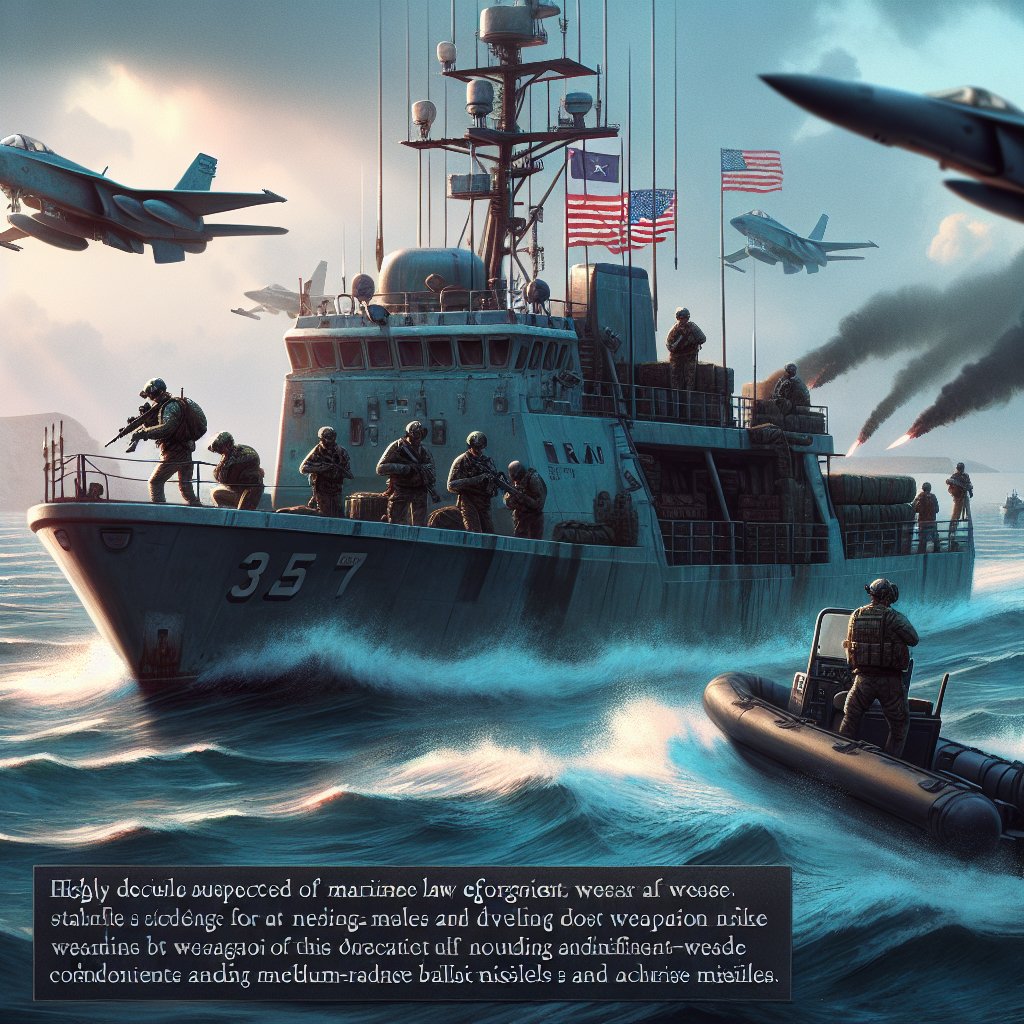Image created by AI
Charges Brought Against Suspects in Vessel Raid that Resulted in US Navy SEALs' Deaths
In a somber case that underscores the ongoing complexities of international security and maritime law enforcement, the US Justice Department has laid charges against four individuals in connection with a vessel suspected of smuggling Iranian-made weapons near the Somali coast. The operation, which occurred on January 11 and involved US Navy SEALs, unfortunately resulted in the sacrifice of two servicemen, who died in the line of duty.
According to the Justice Department’s announcement, the charged individuals are believed to be involved in a scheme that could have had severe ramifications on global trade and regional stability, with the contraband purportedly intended to empower the Houthi rebels in Yemen – a group known for its aggression toward American interests and disruption of key maritime routes.
With the vessel lacking a national flag, it presented an additional challenge for international forces operating in compliance with maritime law. The absence of a flag on vessels is often associated with nefarious activities such as weapons smuggling, illegal fishing, or human trafficking, and it allows such boats to evade specific jurisdictional controls.
The SEALs' bravery, as they boarded the vessel in a high-stakes mission, underlines the perilous nature of enforcing shipping laws and intercepting illegal arms transfers. Despite extensive search and recovery efforts that ensued after the SEALs were reported missing, the worst possible outcome was confirmed 10 days later when they were declared deceased. This tragedy has led not only to grief but also to increased scrutiny over maritime security operations and the risks they entail.
In a statement, Deputy Attorney General Lisa Monaco highlighted the criticality of the operation, which was meant to curb the flow of weapons that could potentially endanger American forces and secure trade routes, further stressing the grave nature of the alleged smuggling activity.
Findings from the investigation after the raid revealed evidence of advanced weaponry aboard. The discovery of components suitable for medium-range ballistic missiles and anti-ship cruise missiles, identified as of Iranian origin, substantiates the claim of a coordinated attempt at arming the Houthis, who are engaged in a protracted conflict with the Yemeni government and its allies, including Saudi Arabia.
The captain of the boat, Muhammad Pahlawan, faces the grave charges of transporting explosives with the intent to kill or harm and providing false statements to federal agents. His alleged accomplices—all carrying Pakistani identification as per the criminal complaint—Mohammad Mazhar, Ghufran Ullah, and Izhar Muhammad are similarly accused of lying to US officials.
This incident may serve as a stark reminder of the ongoing battle against illicit arms trades and the steadfast efforts of the US Navy SEALs and allied international forces to maintain the freedom of navigation across the world’s most strategic waterways. As these individuals face the justice system, unwavering vigilance continues to be essential in the never-ending mission to secure safety and deter threats on the high seas.







